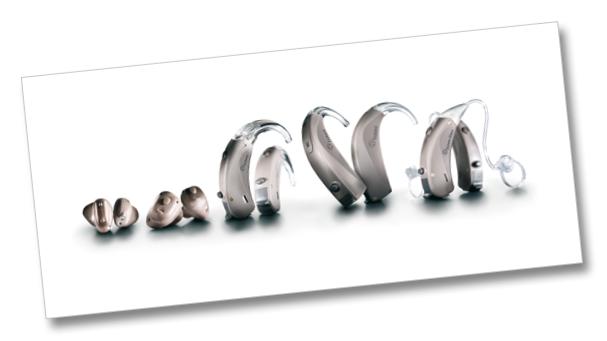Here’s my original posting on this subject.
Artikkel av Dr. Neil:
Forklaring av “recruitment” ifbm hørselsnedsettelse
© Juni 2001 by Neil Bauman, Ph.D.
Norsk oversettelse: Stein Thomassen, www.tinnitus-tips.no
Link til originalen: www.hearinglosshelp.com/articles/recruitment.htm
Du kan kontakte Dr. Neil på neil@hearinglosshelp.com
Spørsmål: Enkelte mennesker kan ikke bruke høreapparater fordi de har alvorlig “recruitment”. Recruitment er et veldig merkelig navn på dette problemet. Ordet betyr å “verve” eller “rekruttere” Ordboken sier ingenting om hørselsproblemer og høreapparater. Hva er egentlig recruitment og hvor kommer det merkelige navnet fra? – C. H.
Svar: Godt spørsmål. Ikke rart du er forvirret! Selv mange helsearbeidere innen hørsel forstår ikke denne tilstanden som har dette merkelige navnet recruitment. Det er mange misforståelser rundt recruitment. Men faktisk er recruitment et godt ord for å beskrive dette fenomenet – så snart vi forstår hva som skjer i vårt indre øre.
Hva er recruitment?
Veldig forenklet kan man si at recruitment er når lyder oppleves å bli for sterke for fort.
Før vi ser på hvordan recruitment fikk navnet sitt, er det to ting vi må vite om recruitment.
For de første: Recruitment er alltid en bivirkning av et sensorinevralt hørselstap (tap pga ødelagte hårceller i det indre øret). Hvis du ikke har et sensorinevralt hørselstap, kan du ikke ha recruitment.
For de andre: Det finnes to andre fenomener som ofte sammenblandes med recruitment. Det er hyperakusis (overfølsomhet for normale lyder) og fonofobi (frykt for normale lyder, og etter hvert overfølsomhet for dem). Både hyperacksis and fonofobi kan opptre enten du har normal hørsel eller er hørselshemmet. Dersom du har sensorinevralt hørselstap, kan du faktisk lide av alle tre tilstandene på samme tid!
Hvordan recruitment fikk sitt navn
La oss nå ta en titt hvordan recruitment “fungerer” og hvordan det fikk sitt navn. Den kanskje letteste måten å forstå recruitment er å sammenligne tangentene på et piano med hårcellene som sitter i sneglehuset i det indre øret.
Pianoet har en rekke hvite tangenter, mens det indre øret vårt inneholder tusenvis av “hårceller.” Tenk på hver hårcelle som om den var en hvit tangent på et piano.
Piano-tangentene er inndelt i mange oktaver. Hver oktav bestå
r av 7 hvite tangenter. På samme måte kan du forestille deg hårcellene i vårt indre øre gruppert som mange “kritiske grupper” hvor hver kritisk gruppe består av et bestemt antall hårceller. Hver kritiske gruppe tilsvarer på denne måten en oktav på pianoet.
Akkurat slik som hver piano-tangent tilhører en eller annen oktav, tilhører hver hårcelle en eller annen kritisk gruppe.
Når du spiller en akkord på pianoet, trykker du ned to eller flere tangenter samtidig, men de sender bare ett lydsignal til hjernen din. På samme måte (men likevel annerledes) er det når en hårcelle som tilhører en bestemt kritisk gruppe, blir stimulert av en lyd. Hele den kritiske gruppen sender et lydsignal til hjernen vår, som vi “hører” som én lyd med den tonehøyden som den kritiske gruppen er følsom for. Slik fungere det når man hører normalt.
Når man har et sensorinevralt hørselstap, er det imidlertid slik at noen av hårcellene har dødd eller sluttet å fungere. Når dette skjer, vil hver “kritisk gruppe” ikke lenger være fullt “bemannet” med hårceller. Dette tilsvarer et piano hvor noen av de hvite tangentene er fjernet. Resultatet blir at noen oktaver ikke har 7 tangenter lenger.
Hjernen vår er slett ikke glad for en slik situasjon. Den forutsetter at hver kritiske gruppe har en full rekke av hårceller. På samme måte som en forening som mangler medlemmer, må verve eller rekruttere nye medlemmer, må hjernen vår også starte er rekrutterings-kampanje. Men siden alle hårcellene allerede er opptatt, finnes det ingen ledige å rekruttere.
Det hjernen da gjør, er ganske smart. Den rekrutterer helt enkelt noen hårceller fra de kritiske gruppene som ligger ved siden av. (Nå forstår vi det merkelige navnet.) Disse hårcellene må nå utføre dobbelt arbeid eller verre. De tilhører fremdeles sin opprinnelige kritiske gruppe, men er i tillegg også blitt medlem av en eller flere andre kritiske grupper.
Hvis bare noen få hårceller dør, så vil nabo-hårcellene lett takle dobbelt-jobbingen. Hvis mange eller de fleste hårcellene har dødd, vil hjernen likevel forsøke å rekruttere nok til at hver kritiske gruppe får en full rekke av hårceller. Dermed kan gjenlevende hårceller bli rekrutteret til å jobbe for mange kritiske grupper.
Virkningen av recruitment
Denne rekrutteringen forårsaker to grunnleggende problemer.
Det ene er at lyder som når fram til hjernen, later til å være mye kraftigere enn normalt. Årsaken er at de rekrutterte hårcellene fremdeles jobber i sin opprinnelige kritiske gruppe i tillegg til at de gjør tjeneste for andre nærliggende kritiske grupper.

Husk at når en hårcelle i et kritisk gruppe blir stimulert, sender hele den kritiske gruppen et signal til hjernen vår. Så den opprinnelige kritiske gruppen sender en ladning lyd til hjernen vår, og samtidig (siden de samme hårcellene nå er rekruttert til og jobbe for en nærliggende kritisk gruppe) stimuleres den nærliggende kritiske gruppen også. Derfor blir enda en ladning lyd sendt til hjernen vår. Dette fører til at vi opplever lyden som dobbelt så kraftig som normalt.
Hvis hørselstapet vårt er betydelig, kan en gitt hårcelle bli rekruttert til å jobbe for flere kritiske grupper samtidig. Følgelig kunne ørene våre sende f.eks. 8 ladninger lyd til hjernen vår, og vi ville da oppleve den resulterende lyden som 8 ganger kraftigere enn normalt. Du kan lett forstå hvordan lyder kan bli smertelig høye veldig raskt! Nå er det vi klager over vår “recruitment”.
Hvis du har alvorlig recruitment, er det faktisk slik at når en lyd blir høy nok til at du kan høre den, er den allerede så høy at du knapt kan utstå den.

Det andre problemet forbundet med recruitment er “uklar” hørsel. Siden hver kritiske gruppe sender et signal med den tonehøyden denne kritiske gruppen er spesialist på, er det slik at når hårcellene blir rekruttert til å jobbe for nærliggende grupper, stimuleres hver kritisk gruppe de er medlem av til å sende sine signaler også. Dette medfører at i stedet for å høre kun én tonehøyde på en gitt lyd, vil hjernen nå motta f.eks. 8 signaler samtidig – med 8 forskjellige tonehøyder.
Virkningen er at vi nå ofte ikke kan skille mellom ord som ligner på hverandre. Alle høres svært like ut for oss. Vi er ikke sikre på om det ble sagt “løpe” eller “kjøpe”. Eller var det “søte,” eller “bløte”, eller “øke”, eller noe lignende? Med andre ord har vi problemer med “tale-diskriminering” (skille lignende ord fra hverandre) i tillegg til problemer med lydstyrken. Dersom vår recruitment er betydelig, vil vår evne til tale-diskriminering sannsynligvis være sterkt redusert.
Litt forenklet kan man si at alt vi kan høre er enten stillhet eller kraftig støy med lite informasjon (lite forståelige ord). Tale som er kraftig nok til at vi kan høre den, blir bare en meningsløs grøt.
Dette er grunnen til at mange med kraftig recruitment ikke kan dra nytte av høreapparater. Høreapparatene forsterker alle lydene – så de gjør vondt. I tillegg kan ikke høreapparater korrigere for den dårlige tale-diskrimineringen. Vi “hører” fremdeles meningsløst babbel.
Imidlertid vil folk med lettere recruitment få mye hjelp av riktig innstilte høreapparater. De fleste moderne høreapparater har en eller annen for for komprimerings-teknikk innebygget. Når komprimeringen er korrekt innstilt i forhold til din hørsel, kan disse apparatene gjøre en forbløffende god jobb med å kompensere for dine recruitment-problemer.
© Juni 2001 by Neil Bauman, Ph.D.
Norsk oversettelse: Stein Thomassen, www.tinnitus-tips.no
Link til originalen: www.hearinglosshelp.com/articles/recruitment.htm
Du kan kontakte Dr. Neil på neil@hearinglosshelp.com











 After a while, another friend of Rolf, Alex, also came to wish him happy birthday, and since we’ve met before we engaged in a conversation about latest news in each others lives. I could not understand very well what he said, and had to ask him to repeat almost every time he said something…
After a while, another friend of Rolf, Alex, also came to wish him happy birthday, and since we’ve met before we engaged in a conversation about latest news in each others lives. I could not understand very well what he said, and had to ask him to repeat almost every time he said something…





